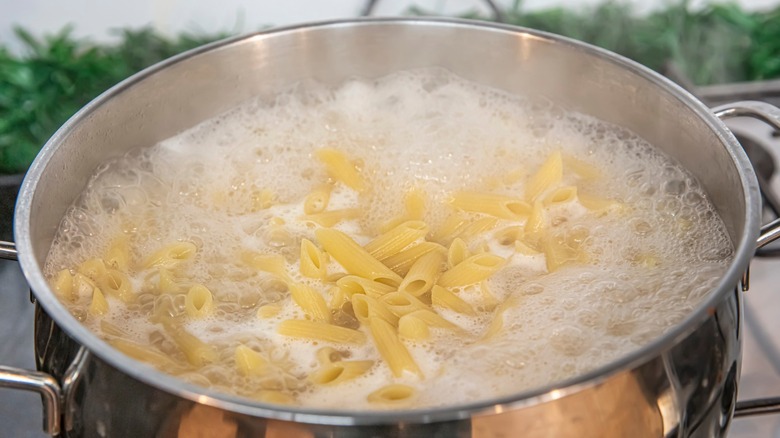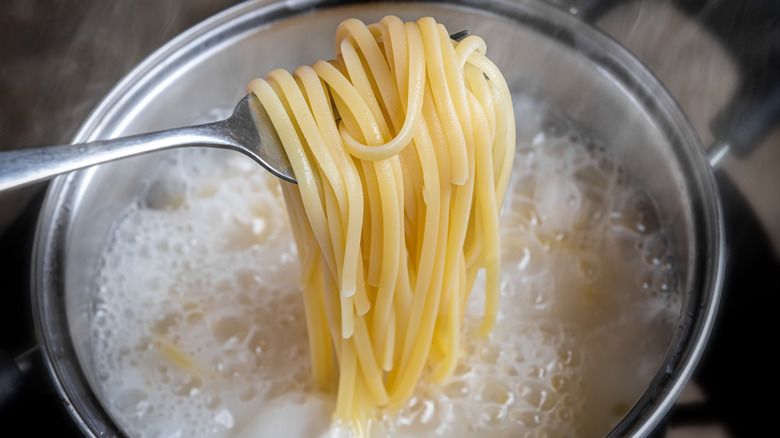What The White, Plastic Looking Film On Top Of Pasta Water Really Is
We've all noticed that curious phenomenon when boiling pasta: First, the pasta water turns cloudy, then a whitish froth forms on top of the liquid, and after you've drained your pasta, a strange plastic-like film remains in the pot. While this sight is a common occurrence, many cooks still wonder about its nature and origin. The explanation is simple — it's all a result of starch buildup in the water.
The primary ingredient in pasta is wheat flour, which contains starches. These starches are released in the boiling water as the pasta cooks, turning the water into a whitish broth. As cooking progresses, more starch is released, and as it absorbs water and gets heated, it swells. The boiling action of the water pushes this starch to the surface where it creates a foamy layer. After you pour out the pasta and water from the pot, some of the starch remains behind in the pot forming a white film. The appearance of this film, often resembling plastic, is due to the drying and concentrating starch.
Therefore, the starchy broth (and film) is a natural and harmless byproduct of cooking pasta. Moreover, it's not just an incidental occurrence but a culinary asset that you shouldn't pour down the drain, instead, you can use it in the following ways.
Put your pasta water to good use
Pasta water is a valuable ingredient in the kitchen. This starchy water can be an excellent addition to various dishes, particularly pasta sauces that you plan on serving with your cooked noodles. Its slightly thick and silky texture makes it an ideal thickening agent for all sorts of sauces. The starch also helps emulsify and bind the ingredients in the sauce, creating a smooth consistency that ensures the sauce coats and adheres to the pasta sufficiently without separating. Using pasta water not only improves the texture of the sauce but some claim it also enhances the overall flavor of the dish. This may be due to the salt in the water.
Pasta water can also be used to adjust the consistency of soups and stews. A splash of this starchy water can thicken a broth without altering its flavor significantly. It's particularly useful in dishes that require a bit more body but where additional ingredients might overpower the intended flavors. If you want to use it in these recipes, it's worth freezing in small amounts, to simply add when you need it.
Pasta water even works well when making bread or pizza dough. The starch in the water can enhance the texture of the dough, making it more pliable and easier to work with, while the salt adds savory flavor. So, next time you spot that white film when you're boiling pasta, consider saving the water for your culinary experiments.

